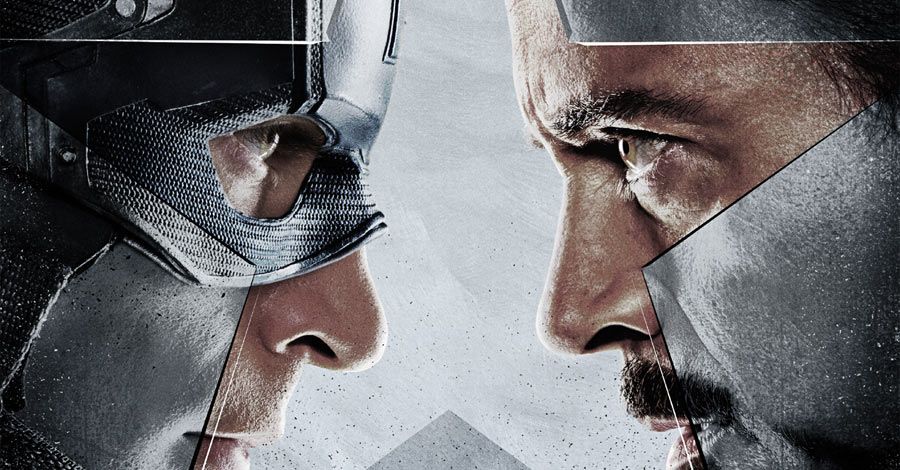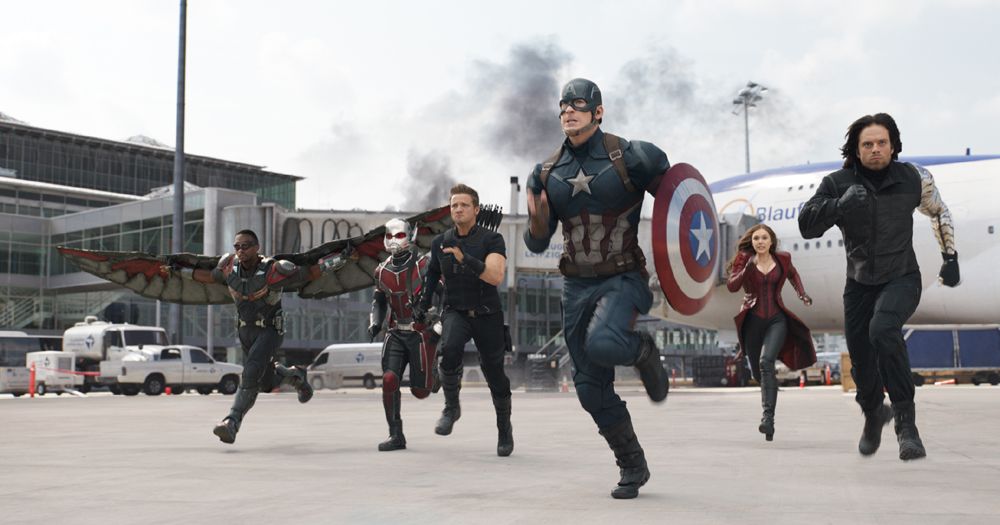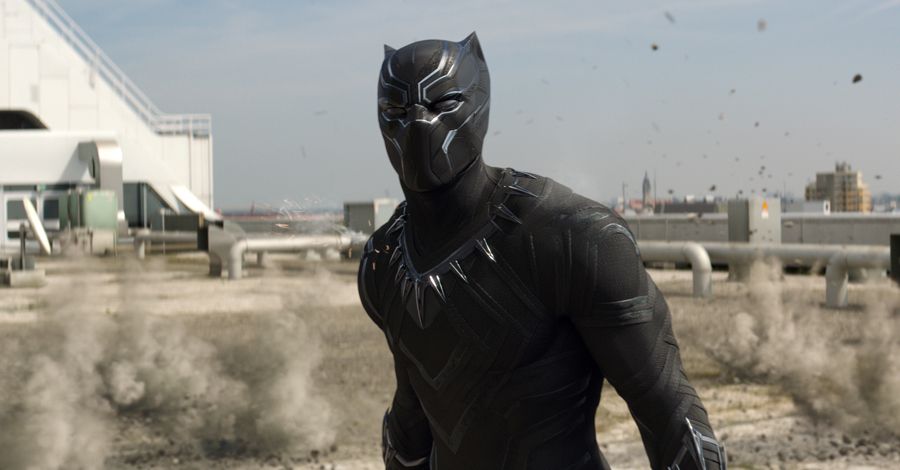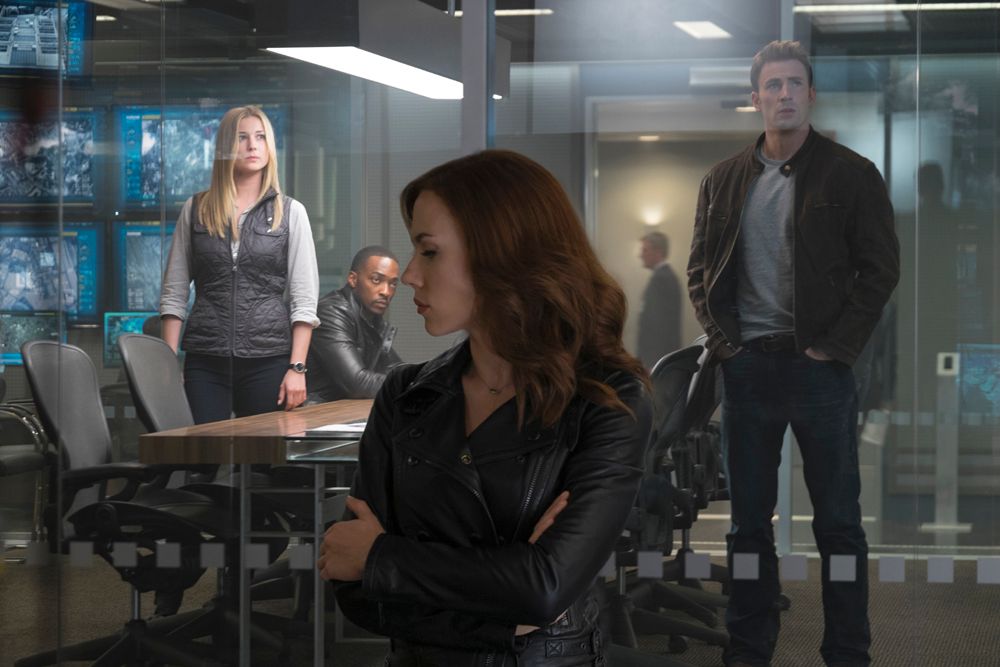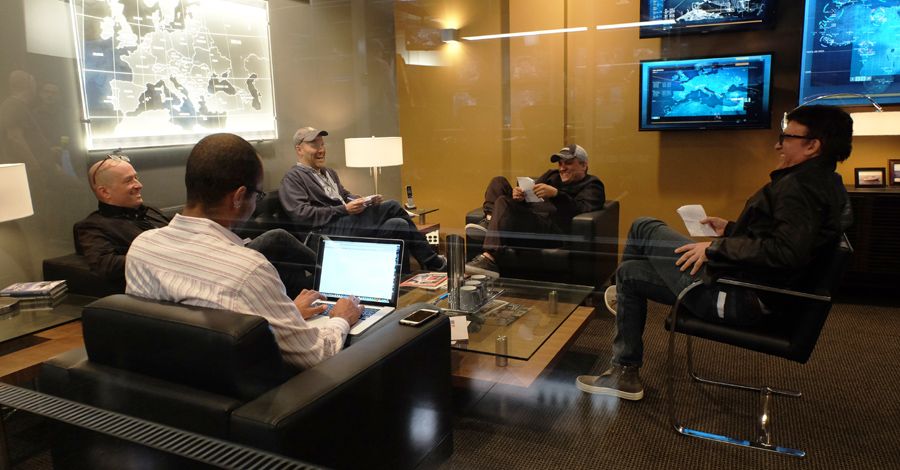With four Marvel Studios films and a television series under their belt, plus another two features in the works, Christopher Markus and Stephen McFeely have informally become the screenwriters of the Marvel Cinematic Universe.
Their fully conversant relationship with the myriad characters, along with their considerable storytelling skills, may explain why their latest, "Captain America: Civil War" -- a reunion with "Captain America: The Winter Soldier" directors Joe and Anthony Russo -- so deftly ensures each member of the hero-heavy cast gets a moment to shine and never devolves into a chaotic crowd scene.
The writers -- who to date have penned all three Cap films and "Thor: The Dark World," executive produced "Marvel's Agent Carter" and will next tackle the two-part "Avengers: Infinity War" -- sat down with CBR News to reveal their approach to bringing the Marvel tradition of massive superhero crossovers to cinematic life.
CBR News: One of the things I really admire about this movie is that it's Cap's story first and foremost, but everybody in this huge ensemble that you have gets their due. Talk to me about getting there, figuring out how to achieve that seemingly impossible feat.
Stephen McFeely: The cork board looks like a serial killer's lair, right? All different possibilities and tangents and threads. How can this person have a big arc because his name's Tony? How can this person have a small arc because we only use him halfway through -- yet, not have no arc? We want some opinions. We want to give each actor a damn good moment somewhere along the way.
Christopher Markus: It was nice to have a central argument to see where people stood, because it wasn't like, oh, Clint is dealing with the death of his mother. You didn't have to give people an individual story. It was more like, "How are they all going to react to this? What side are they going to choose, and what does that mean in relation to what they want out of their life?" Because it's all personal choices. It's a political decision, but every single one of them is making that choice for a reason in their own life. So that led us to three-dimensionalize people.
With the two principal new characters that get a lot of screen time -- Black Panther and Spider-Man -- how did you figure out how much was just the right amount to introduce these characters and get the audience excited about them, but not turn the movie over to them?
McFeely: Black Panther came in pretty organically, because we needed somebody who was an outside voice of the world: "You can't keep doing this. This is what happens." It also helped that it was sort of along the lines of his origin story. He will have to take leadership. We also didn't want to eat "Black Panther's" lunch and take all the good stuff.
RELATED: "Captain America: Civil War" Eyeing $175M Opening Weekend
Markus: He was nice because he's literally, in the story, a man of mystery from a mysterious country that no one knows anything about. So we didn't have to ... In order to maintain that vibe in the story, we couldn't tell you anything about him. So he was the perfect guy to introduce ...
McFeely: And Spidey comes from ... we always knew that one of the smart ways to keep people's arcs separate and organic was to only bring some characters in late. So you're not servicing 14 people from the first minute. So we knew there'd be a recruitment section, and that meant it was a little baggy in case contracts fell through or things way above our head didn't go well. But we always knew that we would leave the movie for four minutes, go get this kid, and bring him in and watch him take part in basically the biggest fight we've ever seen on film. Ant-Man, similar.
This movie is really the kickoff to Phase Three and the big bunch of movies are coming next. Tell me what you wanted to do with the tone of this one to sort of set the table for everything that's coming.
Markus: Well, yeah. We wanted to spill all the toys all over the ground and them leave them there. Then we did not want a unified front for --
McFeely: No tidy endings.
Markus: -- for a battle that may be coming. And to really kind of take people through almost to an end point of their arcs so that they're at that, "What do I do next with my life?" question, which through deus ex machina will be answered for them. So it was like a, "Let's kind of wring everybody's arc dry, a little bit."
McFeely: When the Marvel movies work the best is when you're allowed to take those big swings and move character. If the thing wraps up too neatly, why did I go through all this? You need to make this an indispensable chapter that I cannot miss. And to do that, you've got to move the character along.
Markus: It is weird now to compare movies to TV, but the things have flipped. It is like a really good, ongoing TV show. It's not a procedural. It's not "CSI." You're not going to get bam, bam, bam every time. So that you really do have to go into the theater and see where they're going to go, and where they're going to wind up, and maybe never conclude. Or some of them conclude and some of them go on.
Tell me about the inspirations that you had, both from films -- in the last "Captain America" movie, you guys were definitely in the conspiracy political thriller genre. Did you have some influences like that? And also, from the comics, because there are so many great comics-evoking moments in this movie.
McFeely: Somebody asked that earlier and we couldn't answer it, because the answer was "Seven."
Markus: For part of it.
McFeely: Not the whole movie. But exactly how Zemo works, we really took from "Seven:" A secretive figure who only later reveals himself to be pulling more strings. Because, not to go in too big of a tangent, Tony Stark was the antagonist. So I don't need another guy who's even bigger and has a bigger ax to grind. That's going to take up a lot of screen time. So we want a slow burn that reveals itself, and hopefully twist in a mysterious way. So that was one model. From the comics ...
Markus: From the comics, I mean obviously, it was inspiration and imagery coming from the "Civil War" run ...
McFeely: We had the Raft. We have a Miriam, where she doesn't spit in his face, but she calls Tony to task.
The hints of a Vision and Scarlet Witch romance ...
Markus: Yes, well that is just so appealing that you can't resist doing it!
McFeely: You also have to explain why Vision wasn't wiping the floor with everybody. So maybe if he was holding his fire a little bit for emotional reasons, then hopefully that made some sense.
Markus: But in a way, it is less modeled than the last one in that it's sort of this organic fruition of where all these movies have been going. We didn't have a chance to lay a template over it. It was like, "We need to do that; we need to do that; these people feel this way ..."
McFeely: It's modeled on the MCU.
Going into your next big project -- the back-to-back "Avengers: Infinity War" films -- you've learned, obviously, a lot about how to space out the many characters. The next one's got even more, from what we're hearing. Is there going to be a little bit more of cameo aspect of like "Hey, there's Daredevil swinging by," or do you really want to put every possible character with something significant to do?
Markus: I never want just a cameo. I mean, unless it is just somebody who is so outrageous. ... I'm happy to see a monster cameo down the hall, you know, "Oh, in that cage is that guy from that comic book ..." That's fun. But ...
McFeely: The rule is organic, right? Who comes in naturally and doesn't overstay their welcome? That could be, that's one scene or one episode, or that could be two acts. We have many, many, many, many characters to choose from. You just count up all the people in all the Marvel movies that are still alive, it's an embarrassment of riches. It's a big pain in the ass for us. But they're all available.
Markus: The fun is putting people in new combinations. "Those two have never done anything together before..." There are also certainly some characters you think would be better suited for situations than others. So you flip it and you throw the guy who should not be able to handle himself way out over there and see what happens.
Did you get a list of every character possible that has already been portrayed in the MCU?
Markus: He made the list.
McFeely: We sort of made the list. Yeah.
Markus: We had a wall of cork board. Literally, everyone who is still alive or could be conceivably resurrected in the Marvel Universe went up on the board. And it was insane, and it still is insane. We put most of them in.
Do you anticipate also introducing some new characters?
McFeely: Sure.
Any significant ones?
Markus: Yes. I mean, a lot of the major players have been introduced, but there are plenty of them.
McFeely: My job is hard enough.
Markus: They're rolling out characters that we haven't seen yet, who we may or may not have to accommodate.
What did you get giddy about when you remembered, oh yeah, that actor in that role? That's somebody we can use, in the way that you guys made such great use of Garry Shandling.
McFeely: Well, we did the same thing for the William Hurt character [General Ross]. From jump street we said, "Please, can we get William Hurt?" But for "Infinity War," it's almost too soon to say.
Markus: It's nothing as ridiculous ... like, even just going through the rosters where you're like, the fourth guy down on the "Thor" list is Idris Elba. You're like, "Well, hell ..."
McFeely: That's pretty good.
Markus: That's good. We should keep him. And then they're casting new people. We're like, "Can we have him? Can we have her?" So it is a little daunting.
Given that Marvel had certain realities, contracts, characters, real-world aging, is the plan to leave it all on the table with these big two finale movies and then see where we go from there?
McFeely: Yeah, we have no handcuffs, at the moment. We turn in drafts of both movies at the end of the month, and then I assume some handcuffs will come on.
Markus: But it's been very wide open. Very sort of as big a swing as possible. What the hell?
McFeely: We'll chip away at it later.
Markus: Which has been the mandate all along. It's never, "Let's hold back because we might want to make another one." It's like, "Blow it out."
McFeely: Think of all the things that wouldn't be in "Civil War" if you didn't take the big swing. You wouldn't get Black Panther, you wouldn't get Spider-Man. There would be too many reasons to say no.
Markus: Yeah, and keep introducing new things because they pay off down the line. I love Scarlet Witch. She's really interesting and she came out of the storyline of that movie, and is now this free radical. Same with Vision.
McFeely: It's a big sandbox.
Which also extends to television. You're both executive producers on "Agent Carter." Do we know anything about a Season 3? Have we heard any kind of hope?
McFeely: I don't know.
Markus: All we know is that it wasn't canceled in the initial run of cancellations.
Does it worry you that they've cast Hayley Atwell in another show? Or do you feel confident that that's easy enough to work with should both shows move forward?
Markus: She has claimed that they have said that if it comes back, she can do both. Scheduling is such that that is possible. I don't know if they would do that if they were planning on it.
McFeely: We should not be surprised that Hayley Atwell is popular enough, and a good enough actress that people want to put her on their shows. So we're not going begrudge people --
Hayley on all the shows!
McFeely: All the shows, please.
Tell me about the deepest rabbit holes you guys have gone down in the course of quote-unquote "research."
Markus: Well, you wind up researching a lot of weird weaponry and weird ways to kill people that probably puts you on a lot of watch lists. Some things Zemo does in this where you're like, "I wonder how you would actually make a bomb ..." Then suddenly, there's a click every time you pick up the phone.
McFeely: My computer's filled with maps of Germany and various places where you could stage things. Pretty sure that's where we were going.
Tell me the fun of kibitzing with the other writers and filmmakers working on the other films, finding out what everybody's doing and where you can cross-pollinate.
McFeely: We do do that, particularly on "Infinity War," where we say "Hey, we've got to get started here. Where are you in the process?" So we've been reading all the scripts. We have been talking to all the execs and several of the writers. It's a blast. It's the best sandbox in town.
"Captain America: Civil War" opens May 6.

